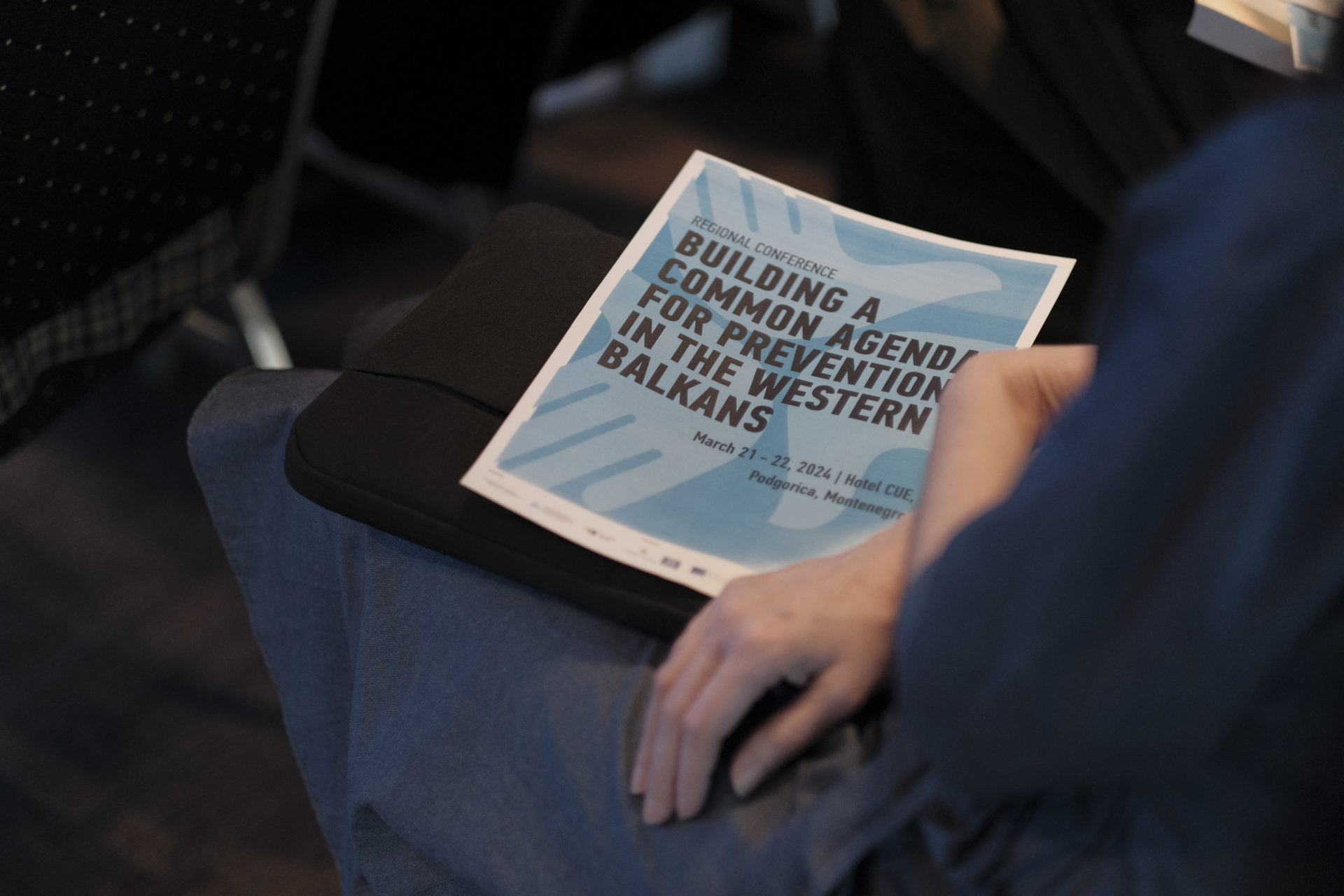
Genocide denial and revisionism continue to hinder reconciliation in the Western Balkans. This is despite ongoing efforts from civil society and the international community. To counter this trend, joint action by representatives of civil society and the international community is necessary to build a sustainable system for atrocity prevention and reckoning with the past.
This was one of the conclusions of the PCRC’s panel discussion last month in Podgorica, Montenegro, entitled “Civil Society & Prevention – Tackling Increased Denial and Revisionism”. The panel was held as part of the regional conference “Building a Common Agenda for Prevention in the Western Balkans”.
In her video message to the conference, Alice Wairimu Nderitu, the United Nations (UN) Special Adviser on the Prevention of Genocide, emphasized that the “burden of unaddressed legacies of past crimes, including genocide, war crimes and crimes against humanity remains very significant. It has been politicized and misused for political gains, undermining peace and reconciliation and undermining efforts for preventing the recurrence of these crimes.”
Genocide Denial and Accountability
Nderitu highlighted the crucial role of civil society in conflict prevention in the Western Balkans, stating that her office will support the implementation of a common prevention agenda in the region. She also condemned the ongoing denial of the July 1995 genocide in Srebrenica.
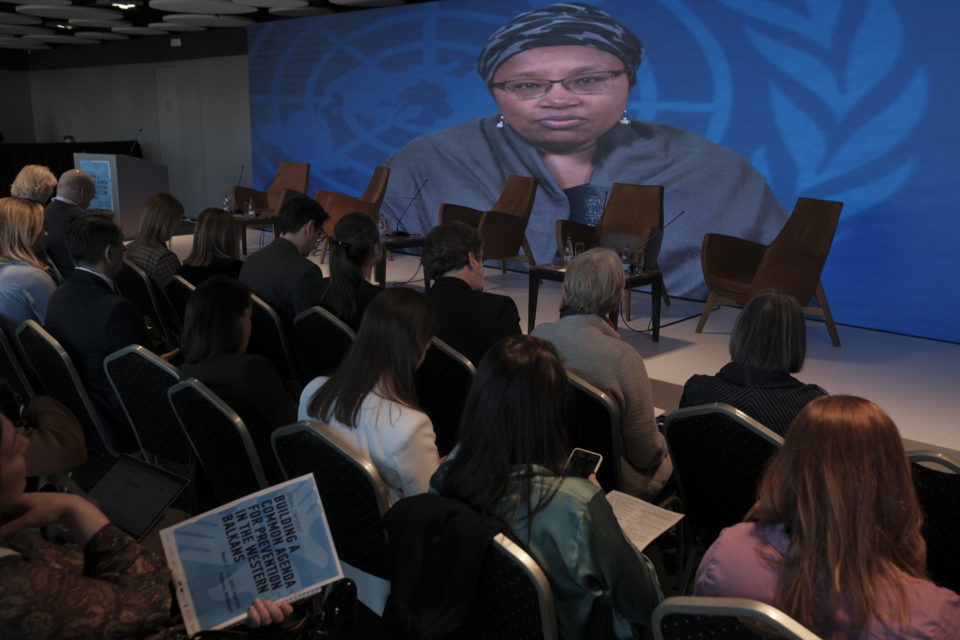
“Denial or distorting the facts of the Srebrenica genocide in the same way as denial or distortion of the facts of the Holocaust or the 1994 genocide against the Tutsi in Rwanda constitutes an indicator of risk for the Commission of Genocide […] This is a key role you have as representatives of civil society, including in many cases, as representatives of the victims and survivors themselves. Together, you’ve been at the forefront of advocating and promoting accountability and of supporting reconciliation, memorialization, and remembrance,” said Nderitu.
Moderating the “Civil Society & Prevention” panel on behalf of Impunity Watch, a Dutch non-profit organisation working with victims of violence, was Professor Thomas Unger. Unger stressed that today revisionism and the glorification of war criminals in the region are stronger than ever. He noted that there are no boundaries to such glorification, and that these phenomena are visible in all spheres: political, intellectual, and in broader society.
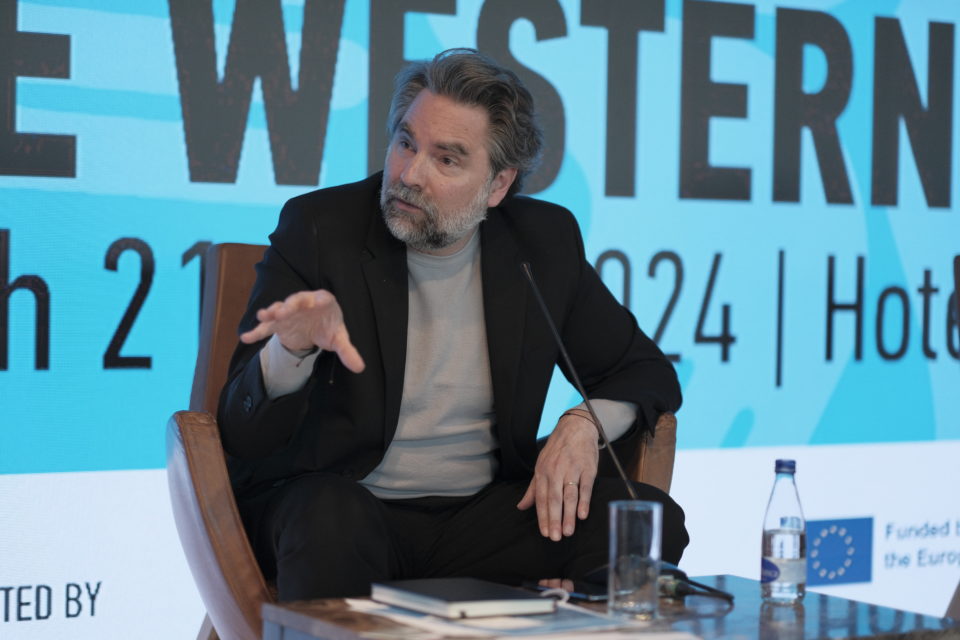
“There is more radicalization, and more hatred, which is very concerning,” Unger said. He added that the power of counterbalances, traditionally offered by civil society, is decreasing, which has benefitted those in power.
Sonja Biserko, President of the Helsinki Committee for Human Rights in Serbia, spoke about the importance of facing the past, especially in Serbia.
“I think that Serbia is the main obstruction of regional reconciliation, because after all, Serbia generated all these wars, which is not acknowledged.” Biserko added that “the construction of one’s identity [in Serbia] is seemingly based on denial and a misinterpretation of the 1990s wars.”
According to Biserko, the issue of denial and revisionism was not only faced in the nineties but throughout the twenty first century. She warned about the risk of geopolitical conflict in the region, with Russia as a key player. The Russian government has and continues to support Belgrade’s interpretation of the Yugoslav Wars. “Russia uses the Kosovo issue as the main argument in keeping this sort of position because of their own interest,” added Biserko.
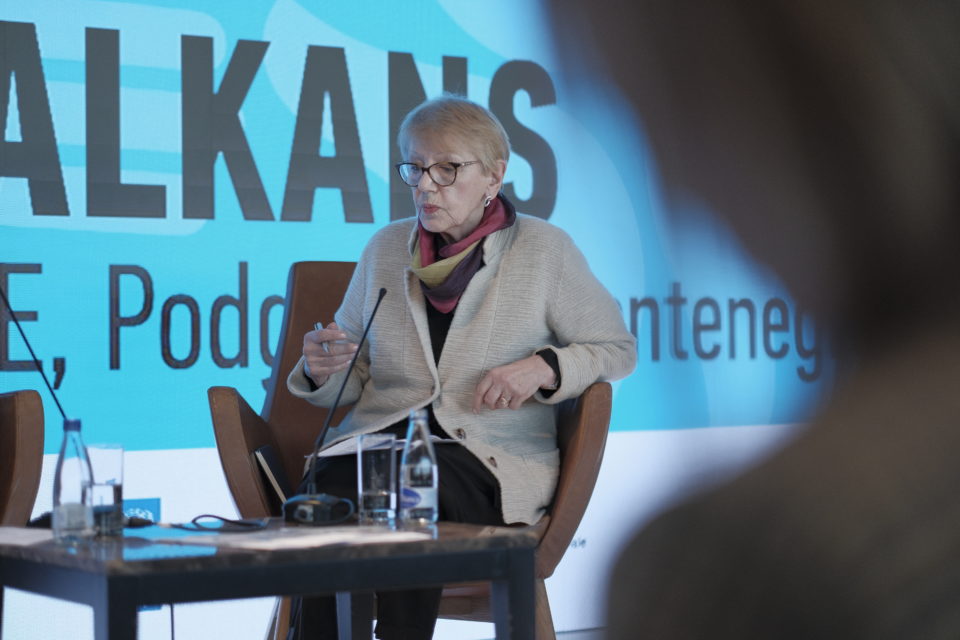
In her conclusion, Biserko emphasized the need for a comprehensive analysis of social structures, including the educational system, media, and the church, to understand the causes of conflict and to build lasting stability. She called for broader societal responsibility, not just from political elites, in the reconciliation process and the building of democratic values. She also stressed the need to explain to young people why wars have occurred and how they unfolded.
Important Role of the Media
Dunja Mijatović, former Commissioner for Human Rights of the Council of Europe, explained the role of the media in fomenting hatred in the build-up and during the 1990s wars.
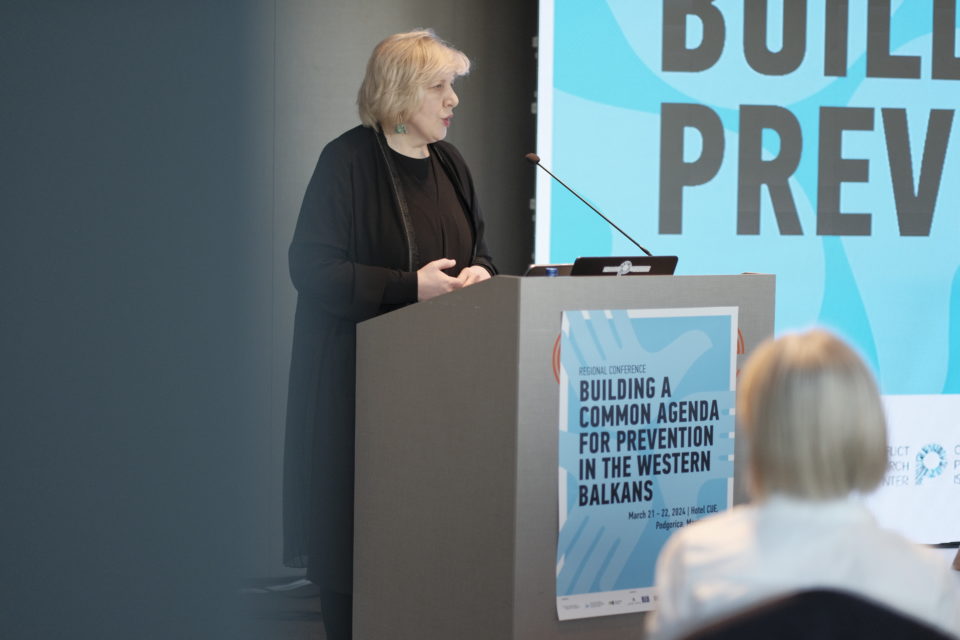
“Media was instrumentalized to create fear. People are not aware of the consequences of words and how language impacts people,” said Mijatović. She added that there is a lack of interest in topics related to war crimes in the media today.
Mijatović stressed that the rehabilitation of convicted war criminals should not be an excuse for spreading hatred and denying crimes. As she said during the conference, the lack of societal reaction to such phenomena is a serious problem. The former Commissioner for Human Rights also warned of the lack of support for independent media in the Western Balkans, which further complicates media freedom and the dissemination of factual reporting.
Nataša Kandić from the Humanitarian Law Center in Serbia echoed Mijatović’s points. “The role of the media is crucial. Without the media, our civil societies are without significant results.”
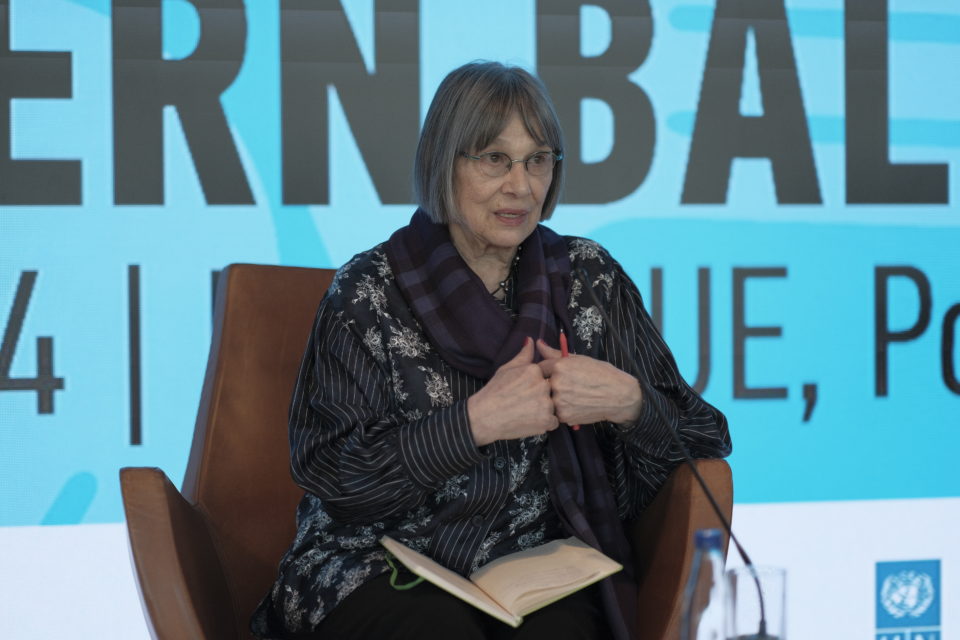
Alongside media support, political engagement from the European Union is also needed. In response to talks of a lack of EU support, Kandić called for a discussion on the EU’s role in transitional justice in the region.
Nderitu encouraged the use of UN recommendations for the protection of victims and preservation of memory as a means to advocate for accountability. She emphasized the importance of collaborative work between civil society and regional initiatives in conflict prevention, with the hope that their efforts will contribute to the development of a common prevention plan in the region.
Ahmed Kulanić, Director of the Sarajevo Memorial Center, addressed the need for educational initiatives to inform the post-war generation about the impact of conflict and the importance of transitional justice. Kulanić contextualized this issue within the challenges faced by peacebuilding organizations in BiH. Namely, at a cantonal level, a fragile and often corrupt political infrastructure poses obstacles to change.
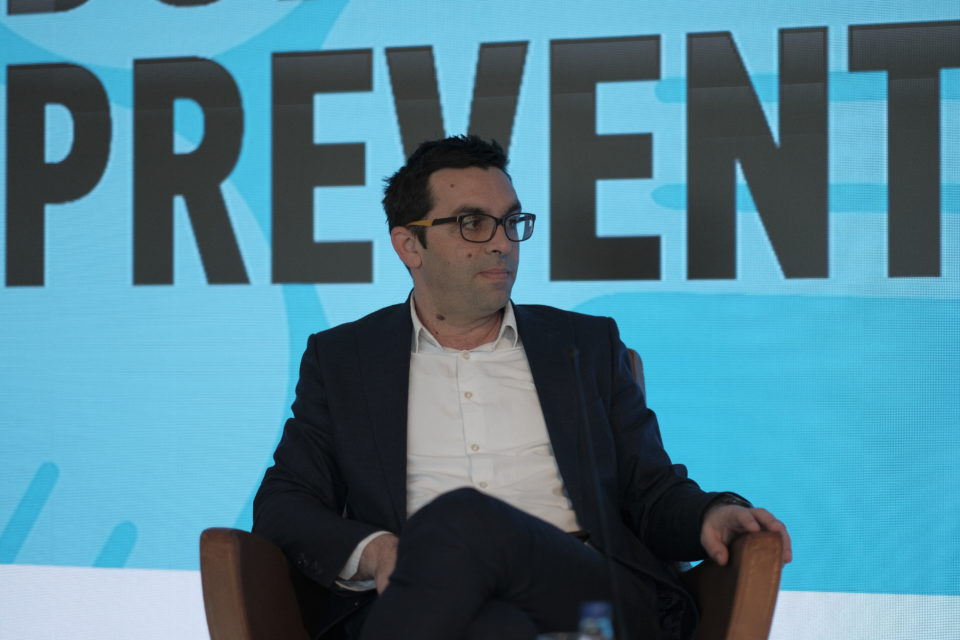
Kulanić emphasized that many monuments are built with the aim of influencing uninformed audiences. He spoke about Prijedor, where the Trnopolje camp was located. Trnopolje was a concentration camp set up by Bosnian Serb forces in 1992. It was a site of mass incarceration, torture and killings targeted at its Bosnian Muslim and Croat prisoners.
“In that war detention camp, there is one building, the extension of the building through the former market. In the main building, veterans of the Army of the Republika Srpska have their offices. The extension is given to the victims or former detainees of Trnopolje, but it’s a very, very small space. And in front of that one there is the memorial for the members of the Army of the Republika Srpska within the war detention camp. And this is the picture when we speak about Bosnia,” explained Kulanić.
He emphasized the importance of transforming war detention camps into memorial centers to dignify the victims and enable the education of future generations.
Kandić from Serbia’s Humanitarian Law Center echoed the need for cooperation with education. She emphasized that young people in the region continue to consider convicted war criminals as heroes, as those who protected the Serbian people.
With all this said, the conference concluded that collaborative efforts between the media, civil society organizations, and the international community are crucial in the pursuit of transitional justice, reckoning with the past and atrocity prevention in the Western Balkans. The regional conference “Building a Common Agenda for Prevention in the Western Balkans” was organized by the Post-Conflict Research Center in collaboration with Impunity Watch, and the Western Balkans Coalition for Genocide and Mass Atrocity Crimes Prevention (CGMAP), which was established in collaboration with the UN Office on Genocide Prevention.
__________________________
This article is a product of the regional conference on atrocity prevention organized by Post-Conflict Research Center, Impunity Watch and the the Western Balkans Coalition for Genocide and Mass Atrocity Crimes Prevention in March 2024 in Podgorica, Montenegro. The conference was made possible through the support from the Council of Europe Commissioner for Human Rights, Rockefeller Brothers Fund, Ministry of Foreign Affairs of Italy, European Union in BiH and UNDP BiH (within the EU Support to Confidence Building in the Western Balkans program).





